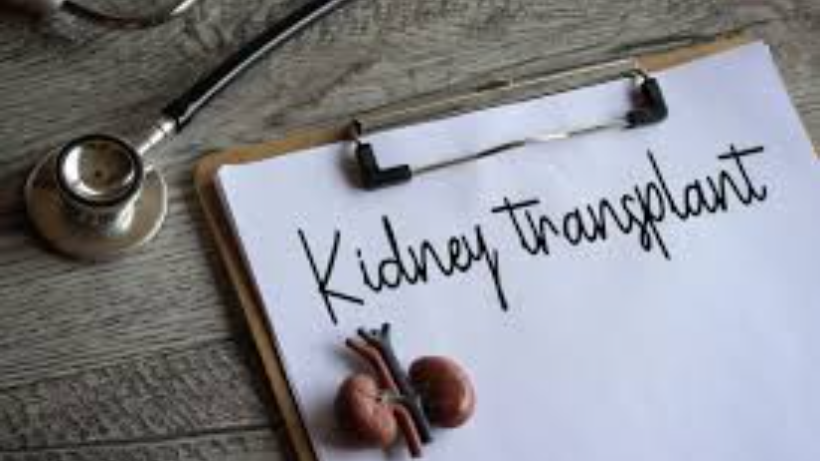
Post-Kidney Transplant Care for Optimal Recovery
01 Nov, 2023
 Healthtrip Team
Healthtrip TeamFor countless individuals battling chronic kidney disease, a kidney transplant isn't just a medical procedure—it's a beacon of hope. However, the path to complete recovery extends beyond the operating room. A meticulous post-operative care regimen is indispensable to ensure the new kidney's longevity and optimal functionality. Let's delve deeper into the essential aspects of post-kidney transplant care.
Transform Your Beauty, Boost Your Confidence
Find the right cosmetic procedure for your needs.

We specialize in a wide range of cosmetic procedures

1. Adherence to Medication: The Cornerstone of Recovery
- Immunosuppressants: Think of these not as mere medications but as guardians of your new kidney. They play a pivotal role in preventing your body from rejecting the newly transplanted organ. Their efficacy, however, hinges on strict adherence. Missing a dose or not following the prescribed schedule can have dire consequences, potentially leading to organ rejection or decreased kidney function.
- Complementary Medications: Beyond immunosuppressants, your doctor will likely prescribe other medications tailored to your needs. These can range from blood pressure regulators to cholesterol-controlling drugs. Each medication serves a distinct purpose, working in tandem to ensure your body remains in equilibrium. It's essential to understand the role of each drug, its side effects, and the importance of timely intake.
2. Recognizing Organ Rejection: Knowledge is Power
Organ rejection is a genuine concern post-transplant. The body, in its attempt to ward off foreign entities, might perceive the new kidney as a threat. Recognizing the early signs of rejection can be life-saving:
- Fever and Flu-like Symptoms: A sudden spike in temperature or feeling unwell can be indicative of your body's adverse reaction to the new kidney.
- Pain or Swelling: Any discomfort or swelling in the area where the kidney was transplanted should be taken seriously.
- Weight and Urine Changes: A sudden increase in weight or reduced urine output can be red flags signaling potential complications.
Immediate medical intervention upon noticing these symptoms can prevent severe complications and even save the transplanted kidney.
Most popular procedures in
Laparoscopic Cystect
Upto 80% off
90% Rated
Satisfactory
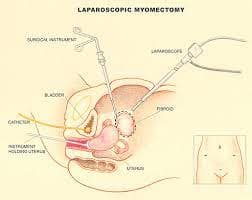
Laparoscopic Myomect
Upto 80% off
90% Rated
Satisfactory
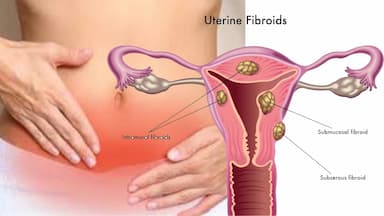
LAVH
Upto 80% off
90% Rated
Satisfactory
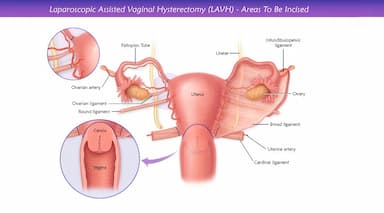
NOTE
Upto 80% off
90% Rated
Satisfactory
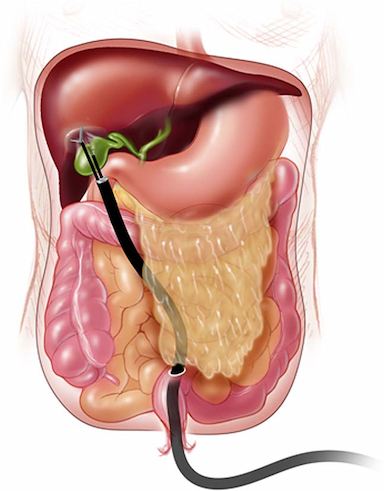
CABG
Upto 80% off
90% Rated
Satisfactory
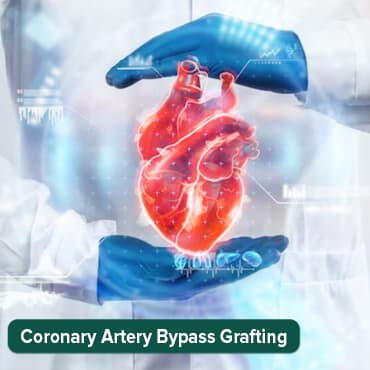
3. Regular Health Check-ups: Prevention Over Cure
The aftermath of a kidney transplant requires rigorous monitoring:
- Frequent Consultations: Especially during the initial months, regular visits to your transplant team are non-negotiable. These check-ups allow for monitoring of kidney function, adjustment of medications, and early detection of potential complications.
- Blood Tests: These will become a routine part of your life. Blood tests provide insights into how well your new kidney is functioning and whether there are signs of rejection.
4. Hygiene and Cleanliness: Your First Line of Defense
Post-transplant, your immune system operates at a diminished capacity, making you more susceptible to infections:
- Hand Hygiene: Regular and thorough handwashing using soap and water or an alcohol-based hand sanitizer can significantly reduce the risk of infections.
- Environmental Awareness: It's prudent to avoid places with large crowds or individuals who are sick, especially during flu season or outbreaks.
- Food Safety: Ensure that your food is well-cooked and properly stored. Raw or undercooked foods can harbor harmful bacteria, posing a risk to your weakened immune system.
5. Dietary Choices: Nourishing the New Kidney
Your diet plays a crucial role in post-transplant recovery:
- Salt Intake: Excessive salt can exacerbate hypertension, a condition detrimental to kidney health. Opt for fresh foods over processed ones and be wary of hidden salts in snacks and restaurant meals.
- Protein Consumption: While proteins are essential for healing and muscle building, excessive intake can strain the kidneys. Collaborate with a dietician to strike the right balance.
- Hydration: Drinking ample water aids in flushing out toxins. However, depending on your kidney function and output, your doctor might recommend monitoring fluid intake.
6. Physical Activity: Strengthening the Body
In the aftermath of a kidney transplant, reintroducing physical activity is paramount not only for physical well-being but also for mental rejuvenation.
- Low-Impact Exercises: Initiating your journey with gentle exercises like walking can be immensely beneficial. These activities promote blood circulation, enhance muscle tone, and boost mood without exerting undue stress on the body.
- Professional Guidance: Before intensifying your exercise regimen or introducing new activities, it's essential to consult with a physiotherapist or fitness professional familiar with post-transplant care. They can tailor a program that aligns with your recovery stage and overall health.
- Caution with Lifting: The surgical site needs time to heal. Engaging in heavy lifting or strenuous activities during the initial recovery phase can risk complications or injuries. Always adhere to the guidelines provided by your healthcare team.
7. Sun Protection: Shielding Sensitive Skin
Certain immunosuppressants can heighten sun sensitivity, making diligent sun protection indispensable.
- Sunscreens: Opt for broad-spectrum sunscreens with a high SPF. These offer protection against both UVA and UVB rays. Reapply every two hours and after swimming or sweating.
- Dress Smart: Wide-brimmed hats, sunglasses with UV protection, and long-sleeved clothing can provide an added layer of defense against harmful sun rays.
- Timing Matters: The sun's rays are most potent between 10 a.m. and 4 p.m. Whenever possible, schedule outdoor activities outside these hours or seek shade.
8. Continuous Learning: Staying Ahead in the Health Game
Your transplant is just the beginning of a lifelong learning journey.
- Education Workshops: Many hospitals and organizations offer workshops tailored for transplant recipients. These sessions provide insights into post-transplant care, recent medical advancements, and more.
- Evolving Research: The medical field is ever-evolving. Stay updated with the latest research, breakthroughs, and recommendations related to kidney health and transplant care.
- Ask Questions: Your transplant team is a reservoir of knowledge. Foster a curious mindset and don't hesitate to seek clarifications or delve deeper into topics of interest.
9. Mental Health: Healing Beyond the Physical
The emotional aftermath of a transplant can be as challenging as the physical recovery.
- Therapy and Counseling: Professional therapists can offer coping strategies, provide a safe space to process emotions, and guide you through the emotional ebbs and flows post-transplant.
- Support Groups: Connecting with fellow transplant recipients can be therapeutic. Sharing experiences, challenges, and triumphs fosters a sense of belonging and understanding.
- Mindfulness and Meditation: Techniques like deep breathing, meditation, and guided imagery can be instrumental in managing anxiety, stress, and emotional turbulence.
10. Abstaining from Detrimental Habits: Safeguarding the Gift
Certain habits can jeopardize the health of your new kidney and overall well-being.
- No Smoking: Tobacco products can exacerbate kidney damage, impair blood flow, and increase the risk of cancers. Commit to quitting.
- Alcohol in Moderation: If consumed, alcohol should be in moderation. Excessive alcohol can strain the kidneys and interact adversely with medications.
- Medication Awareness: Over-the-counter drugs, especially NSAIDs like ibuprofen, can be harmful to kidney health. Always consult your transplant team before taking any new medication.
11. Vaccination Updates: Fortifying Immunity
With a suppressed immune system post-transplant, vaccinations play a pivotal role in warding off potential infections.
- Stay Updated: Regularly consult with your healthcare provider about necessary vaccines. From flu shots to pneumonia vaccines, ensure you're shielded from preventable diseases.
How can we help with the treatment?
If you're on the lookout for treatment in India, Thailand, Singapore, Malaysia, UAE, and Turkey, let Healthtrip be your compass. We will serve as your guide throughout your medical treatment. We'll be by your side, in person, even before your medical journey commences. The following will be provided to you:
- Connect with renowned doctors from a network spanning 35+ countries and access the world's largest health travel platform.
- Collaboration with 335+ top hospitals , including Fortis and Medanta.
- Comprehensive treatments from Neuro to Cardiac to Transplants, Aesthetics, and Wellness.
- Post-treatment care and assistance.
- Teleconsultations at $1/minute with leading surgeons.
- Trusted by 44,000+ patients for appointments, travel, visa, and forex assistance.
- Access top treatments and packages, such as Angiograms and many more.
- Gain insights from genuine patient experiences and testimonials.
- Stay updated with our medical blog.
Our success stories
12. Open Communication: The Bedrock of Trust
Your relationship with your healthcare team is a partnership built on trust and open communication.
- Voice Concerns: No concern is too trivial. Whether it's a slight change in symptoms, a new side effect, or an emotional challenge, communicate openly with your transplant team.
- Proactive Conversations: Early discussions about potential issues can lead to timely interventions, preventing minor concerns from escalating into major complications.
A kidney transplant is a second chance at a healthier life. With the right care, you can ensure that your new kidney serves you well for years to come. Remember, every individual's journey is unique. Always consult with your healthcare provider about the best post-transplant care tailored to your needs.
Wellness Treatment
Give yourself the time to relax
Lowest Prices Guaranteed!

Lowest Prices Guaranteed!



